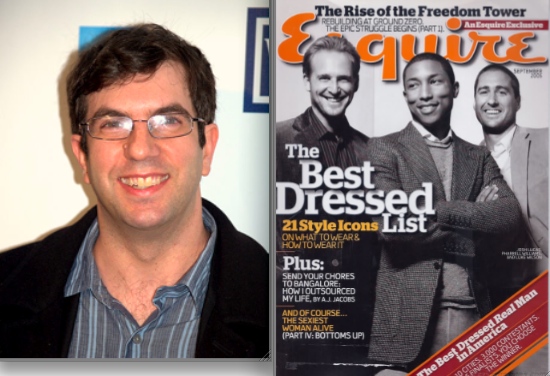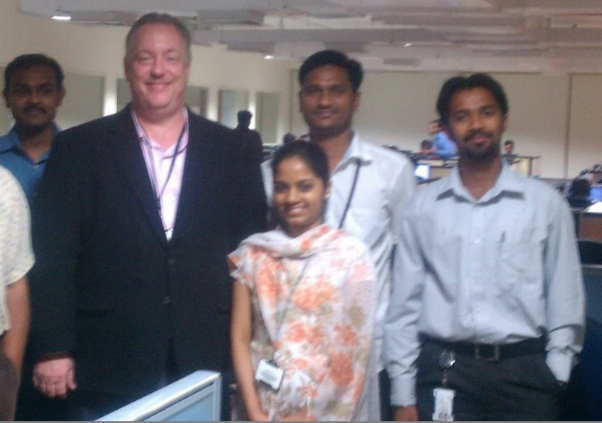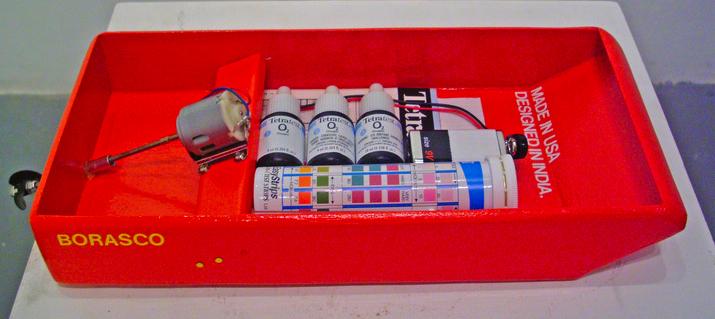Optimizing Your Time – Yan’s Journey with a Virtual Assistant (Part -1)
It is great to be back on the GetFriday blog circuit after a long time. And I take great pleasure in introducing Yan Knudtskov Nielsen, a GetFriday client and the Founder & CEO of Yan&Co in Copenhagen, Denmark. Yan & Co is a Danish web agency that specializes in WooCommerce & WordPress development for clients and provides them with ongoing maintenance and support. His goal is to work with companies that have history, warmth, a heart and soul and makes their dreams more accessible through his expertise. Yan began his professional career as an IT consultant and worked with the Danish Broadcasting Corporation for 5 years. So if you are in / visiting Denmark, chances are that you are perhaps using one of the applications or websites he helped create during his stint there. He became an Entrepreneur in 2012 to carry forward his vision and passion to help business clients with their web and software development. Besides business and software development he is passionate about philosophy, biomechanics and martial arts and has been an instructor in Practical Wing Chun Kung Fu since 2008. He has narrated his journey with virtual assistance in three parts. Here is the Part 1. – Sunder P CEO Journey Begins In a world that is becoming more and more interconnected, managing your time and prioritizing what you spend your time on has become a cornerstone not only in professional life but also in private life. Time. It could be argued that time is the most precious resource you have. The argument? You can use time to increase the amount of almost any other “thing” in your life: friends, money, health, wellbeing, real estate or laughter. It may require effort, of course, but it’s possible – due to Time. However, time will always be a decreasing resource. There only ever becomes less of it, and if we are being honest, you don’t even know how much you have left. This is not to get all gloomy and doomy, it’s just a statement of the facts. Coming to terms with it, at least in my experience, makes it easier to prioritize. Enter Vanessa One day I was having a conversation with a friend of mine, Vanessa, and I was explaining how it felt to have a lot of tasks that I didn’t quite enjoy and how I could tell that there wouldn’t be less of them as my business grew. “Well, why don’t you try with a virtual assistant? I’ve been doing that for years and it really helped me.” she asked. I looked at her, with what I imagine was a sort of dumbfounded expression, not sure what to reply exactly.“Ehm.. Eh.. what’s that? Does that even work?” I asked. Vanessa went on to explain how some of the recurring processes were handled by her VA. It sounded like a unicorn, riding a rainbow, poofing glitter. It sounded pretty amazing and too good to be true! “Should I setup a meeting for you?” Vanessa asked. I panicked. Totally panicked. I had no idea why, at the time. “Ehm ehh.. I’ll give it a thought” I replied. The seconds you spend, drastically add up over a year One of the key aspects of my way of doing business today is that I make an effort to ask my self the question: ”Could this be done smarter or could it be automated somehow?” I’m definitely not the first person to ask a question like this. But there’s a reason why I give it a lot of thought. Let’s say you have a recurring task, which takes you 15 seconds to complete. Doesn’t sound like much, does it? How about performing it 30 times daily? Now we’re at 7 minutes and 30 seconds. Five times weekly? 37 minutes and 30 seconds. A year later of 50 work weeks? 1.875 minutes or the equivalent of 31 hours and 15 minutes. Does that sound very appealing if it’s something you don’t truly enjoy? Delegation is one of the keys to spending you time more meaningfully You have probably heard it about a 427 times before that you should learn to delegate. However only very few of those who utter this statement, actually dive into the topic of how to do it, the pitfalls and caveats of it. With this post, my aim is to give a bit more of a real approach to delegation by sharing some of my experiences and lessons learned. Spending Time on What You Enjoy Even before I started my career, I’ve spent quite a lot of time thinking about how this world of ours’ works. One thing that over the year became more and more important to me was the feeling of freedom and being able to choose what I spend my time on. As Yan&Co grew, so did the related tasks, some of which I wasn’t very fond of like taxes, accounting, and other administrative tasks. I could tell that they were very important to the business but they just zapped my energy. While they where no doubt critical and important, they also seemed like an entry barrier to doing what I truly love. And wouldn’t it be wonderful to have the entire workweek dedicated to doing something that feels meaningful? Importance vs. meaningfulness The feeling of meaningfulness does not necessarily imply something is or isn’t important. Importance is usually related to the severity of the consequences and how they would impact your life or others. The same applies to the fact that just because something doesn’t feel meaningful to you, doesn’t prevent it from being very meaningful to another person. A very real example from my everyday is bookkeeping. For the first couple of years, I did it because it was important (because well, the tax collecting agency seems to be quite set in stone on this part). However, I wasn’t particularly good at it, made lots of small errors and thus spent time trying to correct these errors – Sometimes just
Optimizing Your Time – Yan’s Journey with a Virtual Assistant (Part -1) Read More »
It is great to be back on the GetFriday blog circuit after a long time. And I take great pleasure in introducing Yan Knudtskov Nielsen, a GetFriday client and the Founder & CEO of Yan&Co in Copenhagen, Denmark. Yan & Co is a Danish web agency that specializes in WooCommerce & WordPress development for clients and provides them with ongoing maintenance and support. His goal is to work with companies that have history, warmth, a heart and soul and makes their dreams more accessible through his expertise. Yan began his professional career as an IT consultant and worked with the Danish Broadcasting Corporation for 5 years. So if you are in / visiting Denmark, chances are that you are perhaps using one of the applications or websites he helped create during his stint there. He became an Entrepreneur in 2012 to carry forward his vision and passion to help business clients with their web and software development. Besides business and software development he is passionate about philosophy, biomechanics and martial arts and has been an instructor in Practical Wing Chun Kung Fu since 2008. He has narrated his journey with virtual assistance in three parts. Here is the Part 1. – Sunder P CEO Journey Begins In a world that is becoming more and more interconnected, managing your time and prioritizing what you spend your time on has become a cornerstone not only in professional life but also in private life. Time. It could be argued that time is the most precious resource you have. The argument? You can use time to increase the amount of almost any other “thing” in your life: friends, money, health, wellbeing, real estate or laughter. It may require effort, of course, but it’s possible – due to Time. However, time will always be a decreasing resource. There only ever becomes less of it, and if we are being honest, you don’t even know how much you have left. This is not to get all gloomy and doomy, it’s just a statement of the facts. Coming to terms with it, at least in my experience, makes it easier to prioritize. Enter Vanessa One day I was having a conversation with a friend of mine, Vanessa, and I was explaining how it felt to have a lot of tasks that I didn’t quite enjoy and how I could tell that there wouldn’t be less of them as my business grew. “Well, why don’t you try with a virtual assistant? I’ve been doing that for years and it really helped me.” she asked. I looked at her, with what I imagine was a sort of dumbfounded expression, not sure what to reply exactly.“Ehm.. Eh.. what’s that? Does that even work?” I asked. Vanessa went on to explain how some of the recurring processes were handled by her VA. It sounded like a unicorn, riding a rainbow, poofing glitter. It sounded pretty amazing and too good to be true! “Should I setup a meeting for you?” Vanessa asked. I panicked. Totally panicked. I had no idea why, at the time. “Ehm ehh.. I’ll give it a thought” I replied. The seconds you spend, drastically add up over a year One of the key aspects of my way of doing business today is that I make an effort to ask my self the question: ”Could this be done smarter or could it be automated somehow?” I’m definitely not the first person to ask a question like this. But there’s a reason why I give it a lot of thought. Let’s say you have a recurring task, which takes you 15 seconds to complete. Doesn’t sound like much, does it? How about performing it 30 times daily? Now we’re at 7 minutes and 30 seconds. Five times weekly? 37 minutes and 30 seconds. A year later of 50 work weeks? 1.875 minutes or the equivalent of 31 hours and 15 minutes. Does that sound very appealing if it’s something you don’t truly enjoy? Delegation is one of the keys to spending you time more meaningfully You have probably heard it about a 427 times before that you should learn to delegate. However only very few of those who utter this statement, actually dive into the topic of how to do it, the pitfalls and caveats of it. With this post, my aim is to give a bit more of a real approach to delegation by sharing some of my experiences and lessons learned. Spending Time on What You Enjoy Even before I started my career, I’ve spent quite a lot of time thinking about how this world of ours’ works. One thing that over the year became more and more important to me was the feeling of freedom and being able to choose what I spend my time on. As Yan&Co grew, so did the related tasks, some of which I wasn’t very fond of like taxes, accounting, and other administrative tasks. I could tell that they were very important to the business but they just zapped my energy. While they where no doubt critical and important, they also seemed like an entry barrier to doing what I truly love. And wouldn’t it be wonderful to have the entire workweek dedicated to doing something that feels meaningful? Importance vs. meaningfulness The feeling of meaningfulness does not necessarily imply something is or isn’t important. Importance is usually related to the severity of the consequences and how they would impact your life or others. The same applies to the fact that just because something doesn’t feel meaningful to you, doesn’t prevent it from being very meaningful to another person. A very real example from my everyday is bookkeeping. For the first couple of years, I did it because it was important (because well, the tax collecting agency seems to be quite set in stone on this part). However, I wasn’t particularly good at it, made lots of small errors and thus spent time trying to correct these errors – Sometimes just







